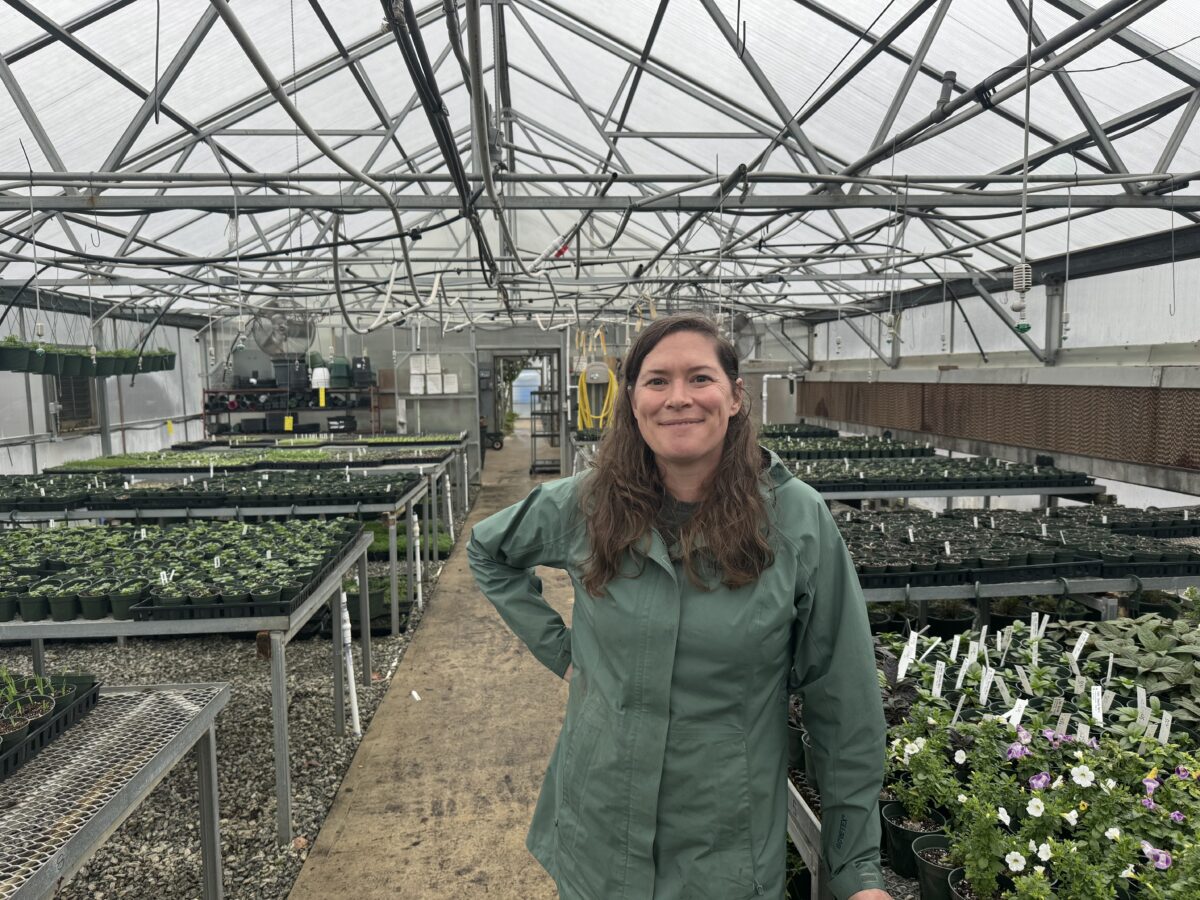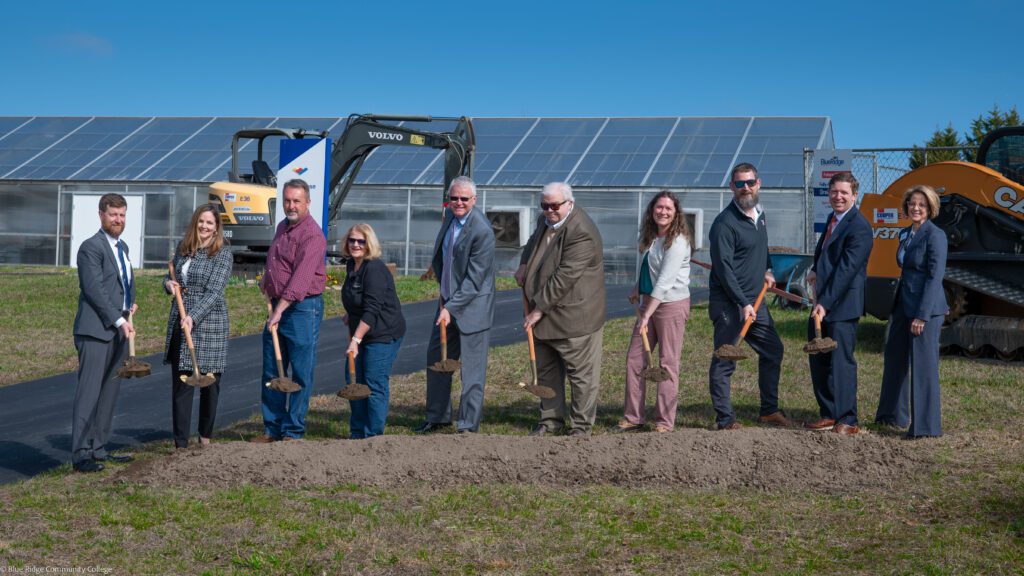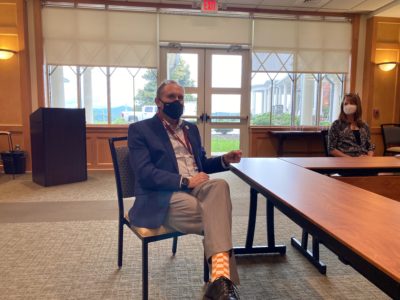

|
|
On March 6, 2023, Pactiv Evergreen announced the closure of the paper mill that sat in the heart of downtown Canton. The mill served as one of the largest employers in the community — but also as the heartbeat of a community dubbed “Mill Town.”
One year later, I found myself in Haywood County as part of a weeklong trip across western North Carolina.
Haywood Community College (HCC) was among the institutions that stepped up to lead the response to the mill’s closing. HCC President Dr. Shelley White would later deliver a speech at the Dallas Herring Lecture dubbing the role of rural community colleges as the “Rural Response.”
“The Rural Response is our ability to stand strong in times of economic crisis, to meet the needs of our citizens despite unpredictable enrollment and funding challenges. The Rural Response of our community colleges must be immediate, powerful, and well-resourced — for the continued success of our small communities and for the future of our state.”
… Shelley White, president, Haywood Community College
We spent several days on the campus of HCC interviewing administrators, staff, faculty, and students who shared their stories of the last year. We will release that video and story soon.
On the first day we set foot on campus, we were referred to an article in the Smoky Mountain News that documented some aspects of the recovery over the past year:
Within the first week after the announcement, HCC established the Haywood Strong scholarship fund to help mill employees pay tuition. By the end of 2023, White estimates, the fund had distributed more than $50,000. Five months after the closing announcement, HCC graduated its first class of truckers, all former mill workers.
Figures recently released by the North Carolina Department of Commerce show almost no change in Haywood County’s unemployment that year, while Kannapolis saw a 5% spike in the immediate aftermath of Pillowtex closing.
Haywood County’s rapid response team was also able to help Pactiv workers avoid — just barely — the three-month health care coverage gap that Pillowtex workers experienced.
Be sure to check out our Haywood Community College page below for more information on the college.
Visiting Blue Ridge Community College
On a rainy, foggy morning, I drove to Flat Rock to visit the main campus of Blue Ridge Community College.
The first order of business was to catch up with Blue Ridge CC President Laura Leatherwood. The college has seen increased enrollment, Leatherwood said: “Our spring semester is looking really good. Our curriculum programs are doing well. We have also seen growth in enrollment in our (Career and College Promise) program. We’re doing exceptionally well.”
I had been invited to campus to visit their horticulture program. Blue Ridge CC recently broke ground on a 4,727-square-foot greenhouse that will serve as a hub for tech-centered agricultural methods, according to a release from the college. The goal is for the center to provide both training for students and upskilling for employees of local agribusinesses.


Rachel Meriwether, the horticulture department head, showed me around the college’s existing greenhouse. As we walked through it, she stressed that the department’s success was tied directly to the growth of agribusinesses in the region. “We draw certain industries due to our clean water and excellent weather,” Meriwether said.
The new greenhouse will introduce students to the level of automation and technology students can expect to see in modern greenhouses. The key, per Meriwether, is for students to know the type of industry they are stepping into in modern agribusiness.
The greenhouse should open next year.
Asheville-Buncombe Technical College‘s growth in the advanced manufacturing space
I also had the opportunity to spend time with Kevin Kimrey, the director of economic and workforce development for Asheville-Buncombe Technical College (A-B Tech), at the college’s Advanced Manufacturing Center.


A-B Tech’s customized training program has experienced significant growth over the past year, Kimrey said, partially due to the expansion of Pratt & Whitney and GE Aerospace in the region. He also attributes the program’s gradual growth to the ongoing recruitment of talented instructors and a focus on securing fundraising and grants from such organizations as the Appalachian Regional Commission and GoldenLEAF. These resources have allowed A-B Tech to develop the building and acquire equipment, complementing the area’s industrial growth.
Kimrey said their program is focused on supporting the needs of both industry and their students. The main hope for students is a focus on building a career that allows them the opportunity for growth, he said.
“We truly see all ages and walks of life,” Kimrey said. “Mainly, we see people who, for whatever reason, have reached a point where they need to retool.”
The Advanced Manufacturing Center will continue to focus on adapting their programming to new technology. Kimrey reminisced about a conference he attended in the mid-teens where a speaker declared that automation was going to change both North Carolina and the world. “Pratt and Whitney, for example, is set up as an industry 4.0 shop where every piece of equipment is networked to ‘talk’ to each other and to other factories across the country,” Kimrey shared.
Below is a presentation from Kimrey that shares the story of the program.
A-B Tech Advanced Manufacturing Center by Nation Hahn on Scribd
<




